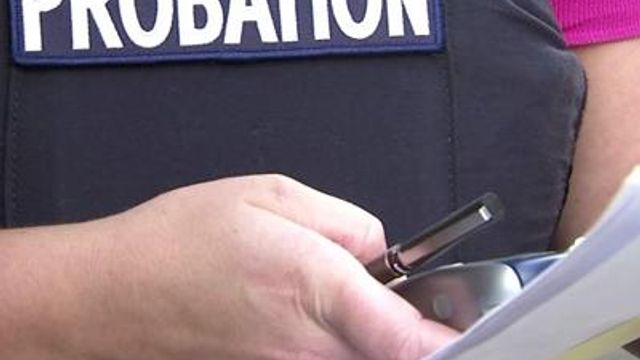Wake probation officers switch from cell phones to radios?
The state's probation system is still trying to rebound from a rough round of criticism, so WRAL Investigates was curious why Wake County probation officers were switching from cell phones to two-way radios.
Posted — UpdatedThe probation system came under fire for poor caseload management in Wake and Durham counties after the deaths of college students Eve Carson and Abhijit Mahato.
The radios help keep officers safe, but they don't help with caseload management.
When a WRAL News crew followed two Wake County probation officers in the field two years ago, it was in the midst of a state-wide probation crisis. Caseloads were heavy, turnover was high, and some very high profile probation clients, turned murder suspects, had fallen through the cracks.
During the visit, a cell phone seemed to be part of the every day business of reaching the people on probation, along with those face-to-face meetings. So when Wake County probation officers traded in their cell phones, a family member of someone on probation e-mailed WRAL with a big concern.
"Easy and efficient communication is critical … How will they check voicemails in the field?” the family member said.
The probation department says cell phones are a convenience but not necessary.
“The majority of the time, the offender is calling to change their appointment (or) they are going to be late for curfew. They can leave a voicemail, and the officer can follow up on it later,” said Pam Walker, spokesman for the N.C. Department of Correction.
Besides, said Walker, cell phones were purchased with another priority in mind.
“Having a cell phone was not an issue of making the caseload more efficient. It was only for their safety,” she said.
Safety is important in their line of work, which is why Wake County officers are getting VIPER radios, which allows them to communicate with each other. Federal stimulus dollars paid the bill, and about 600 probation officers across the state still have them. The goal is for all law enforcement agencies in the state to eventually have them.
"Through the years, we’ve had a patchwork of geographic and budgetary challenges and each area has had to look at what was going to work best for their area," Walker said.
But doesn’t it make sense to have VIPER and a cell phone?
“I guess in some respects it does. I wouldn’t argue with that point,” said Rep. David Guice, R-Transylvania.
Guice, a retired probation manager from the mountains, said he believes the VIPER radios are a must while cell phones are a bonus. Unlike Wake County, many probation districts never had state-issued cell phones.
“The next question would be is, ‘Where do we find the resources to be able to provide that to all 100 counties to all staff members working the field?’” he said.
In Wake County, the cell phone bill was $4,700 a month. VIPER radios are a one time expense with occasional maintenance.
Officers WRAL spoke with off the record said they've just become accustomed to using their personal phones at times, for which they don’t get reimbursed. Probation leaders said they'll monitor how the new system works.
“If we hear enough feedback that it is hindering them in any way, we will look at any modifications that can be made,” Walker said.
Only 40 percent of the probation officers have the VIPER radios right now, and each probation district has a different policy on cell phones and radios. Eventually, the state wants to have one uniform system for communication.
• Credits
Copyright 2024 by Capitol Broadcasting Company. All rights reserved. This material may not be published, broadcast, rewritten or redistributed.






